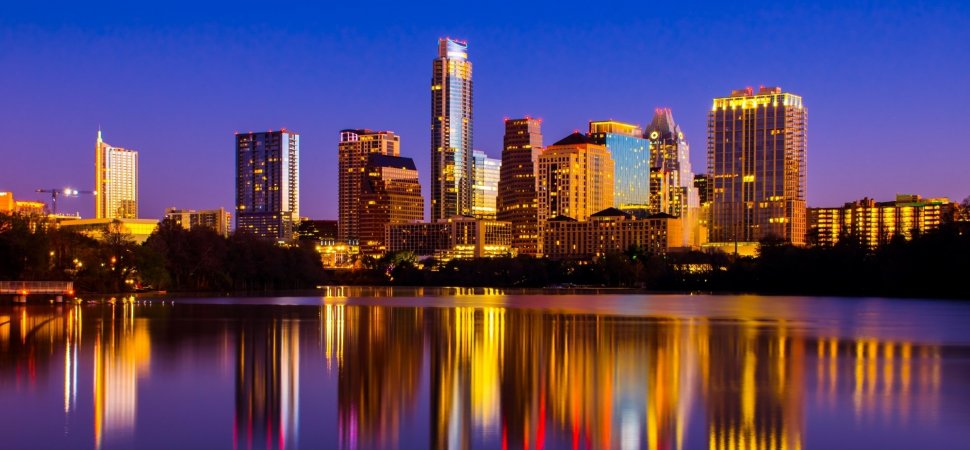
- AddImage

In honor of Small Business Week, Inc. reporters deployed to several cities where they spent one day talking to owners and entrepreneurs in a particular sector about their challenges.
Joah Spearman meets me for coffee a few blocks from his home in East Austin, which is also the headquarters of his company, Localeur. Spearman, a former director of operations at Bazaarvoice, an Austin enterprise software business that went public in 2012, started Localeur in early 2013. The company publishes user-generated restaurant and shopping recommendations geared toward travelers–Spearman calls it “a millennial TripAdvisor.” Localeur launched at SXSW and got a lot of media attention, ending up on numerous best-startups and best-travel-apps lists from the likes of the Today Show and Time. Spearman, a rarity in Austin as a black tech entrepreneur, became a familiar media presence in the local startup scene.

CREDIT: Gary Williams Jr.
Yet fundraising for Localeur has been a painful grind. Not one of the local venture-capital firms has invested, and Spearman has instead raised $3 million in mostly small increments. He has 47 angel investors, including a couple of early Facebook leaders and several former Bazaarvoice executives. He’s given away some 40 percent of the company’s equity in the process.
“We got through the first three years averaging two months’ worth of runway,” Spearman says. “So I was raising money pretty much every month”–$25,000 here, $50,000 there, and the occasional $250,000. The team grew to six people, but by late 2015 Spearman laid two of them off and moved the company into his house. He sold his car and replaced it with a scooter.
Talk of the tech industry conjures images of world-eaters like Facebook and Amazon or scrappy 20-somethings in hoodies who raise scads of venture capital in pursuit of the next unicorn. In fact only a small fraction of startups–even tech startups, those most dynamic of small businesses–attract professional money, a preponderance of them in Northern California. In the rest of the country VC money is scarcer and more scattered. Consequently a large majority of tech entrepreneurs lead lives very different from the denizens of HBO’s Silicon Valley, who ride a roller coaster of feast and famine.
The funding gap is obvious in Austin, which has at times been called, somewhat cynically, the land of the bootstrapped tech company. Two years ago David Altounian, a professor of entrepreneurship at St. Edward’s University, a small liberal-arts school close to downtown, took a hard look at the investment environment here. Altounian, who is also a former Dell executive and tech entrepreneur, explains that five years ago the number of tech startups in Austin started to explode. The industry was always prominent here: first centered around large IBM and Motorola outposts, then Dell, and then a few big software companies in the late ’90s. By the late aughts when SXSW became the world’s biggest geek party, the crunchy college town had become a shiny new startup hub.
But the money invested in the city’s startups never seemed to measure up to the hype. “You had a lot more people fighting for the same pool of capital,” Altounian says.

CREDIT: Gary Williams Jr.
What Altounian found stunned the city’s tech industry. While, according to the Kauffman Foundation, Austin has the nation’s highest level of startup activity (essentially the rate of new company creation), it ranks 12th for VC funding. In 2014, the city’s startups raised $620 million in venture capital, while their peers in the Boston area raised $4 billion and the Bay Area almost $24 billion. What’s more, while the average deal in most metro areas is around $10 million, it’s $5.4 million in Austin.
With the appearance of Altounian’s research the long-simmering discontent with Austin’s funding scene boiled over. Questions and blame drove Twitter fights, Medium manifestos, and live debates. Austin investors play it too safe, some said. Austin entrepreneurs don’t chase big enough ideas, others countered. Texans just don’t invest in tech. Coastal VCs don’t bother with the flyover states. And on and on.
Some things most everyone agrees on. Austin investors prefer business-to-business companies over the sexy consumer plays associated with San Francisco. Bringing in actual revenue early is important: Good luck if you plan to grow users first, develop a business model later. And getting funding for a highly speculative “moon shot” company is itself something of a moon shot. “That all worked fine for years, as the startup scene grew up around the chip makers and other earlier infrastructure,” Altounian says. “But suddenly we had this influx of new entrepreneurs who were thinking about startups more broadly.”
While the specifics of Austin’s funding gap are unique to this city, the underlying reality is not. Last year, nearly 80 percent of venture capital in the U.S. went to entrepreneurs…

